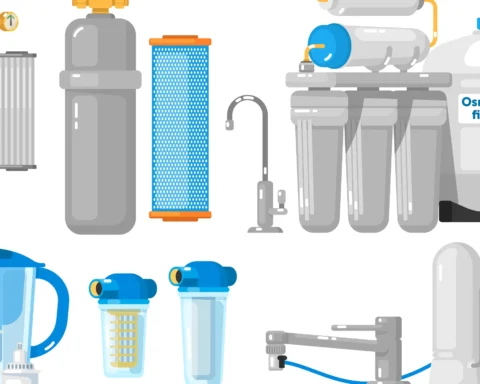Introduction to Whistleblowing
While fraught with personal and professional risks, whistleblowing is a critical mechanism for exposing illicit and unethical organizational activities. It can often lead to significant revelations, impacting everything from financial fraud to public health and safety matters. When individuals blow the whistle, they act with moral courage and expect to foster change within power structures. Organizations of all sizes face challenges, but having a whistleblower attorney can help guide individuals through the complexities involved in such actions.
Whistleblowing is a beacon of moral integrity and accountability in a landscape where corporations wield significant influence. Whistleblowers often find themselves in a dual role: protectors of public interest and catalysts for organizational reform. By unveiling inappropriate practices, they contribute significantly to upholding corporate and public ethics, making transparency a goal and a reality.
The Role of Whistleblowers in Organizations
Whistleblowers are instrumental in initiating change within organizations. They act as a vital check against the unchecked growth of malpractice, ensuring that organizations remain true to ethical standards and legal requirements. Often, they are the insiders who understand the intricacies of an organization’s operations and can identify where things go astray. Their unique position allows them to highlight issues that might otherwise remain unnoticed.
The courage demonstrated by whistleblowers can lead to transformative shifts within organizations, fostering environments that value transparency and integrity. By confronting unethical actions and decisions, whistleblowers contribute to a culture where accountability is paramount and ethical behaviors are encouraged and rewarded. In effect, they act as catalysts for long-term organizational health and success.
Furthermore, protecting whistleblowers through legal frameworks is essential for encouraging individuals to come forward without fear of retaliation. Organizations that actively support whistleblowers often experience improved employee morale, as staff members feel safer and more respected when unethical practices are addressed. Additionally, whistleblowers’ insights can enhance operational efficiency by revealing inefficiencies or processes that require improvement. As organizations prioritize ethics and compliance, they also strengthen their reputations, attracting customers and stakeholders who value integrity. Ultimately, recognizing and appreciating the role of whistleblowers can pave the way for sustainable organizational change and resilience in an ever-evolving business landscape.
Legal Protections for Whistleblowers
Recognizing the importance of whistleblowers, many jurisdictions have implemented laws to protect them from retaliation and discrimination following their disclosures. These legal protections are crucial, providing a safety net for those who stand up against wrongful practices. Understanding the nuances of these laws is vital for individuals contemplating blowing the whistle. Not only do these protections encourage openness and transparency, but they also promote a corporate culture that values ethical integrity over complacency and wrongdoing.
In many cases, these legal protections also offer financial incentives, thus empowering employees to prioritize ethical standards without fear of losing their jobs or facing career repercussions. By supporting whistleblower activities, governments and organizations reaffirm their commitment to accountability.
Why Transparency is Key to Ethical Practices
Transparency within organizations is essential for building trust and maintaining accountability among stakeholders. It fosters an environment where ethical practices are encouraged and expected, leading to long-term sustainable success. Organizations prioritizing transparency often see enhanced reputation and improved relations with employees and customers.
In practice, transparency allows companies to operate honestly and openly, reducing the likelihood of misconduct and misrepresentation. It lays the groundwork for a culture that values ethical behavior and empowers employees to make decisions aligning with its core values.
The Impact of Whistleblowers Across Different Industries
Whistleblowers have left an indelible mark across various industries by initiating changes that resonate far beyond individual organizations. From healthcare to technology, their contributions disrupt unethical practices and set new standards for transparency and accountability. Acknowledging the industry-wide impact underscores why whistleblower protections and support are indispensable.
By proactively addressing misconduct, whistleblowers protect consumers and stakeholders and help maintain a fair and competitive marketplace. Their actions often lead to comprehensive reviews of existing practices, allowing industries to evolve and address challenges more effectively.
How Companies Can Support Whistleblowers
Any organization committed to maintaining ethical and transparent operations should prioritize supporting whistleblowers. Establishing robust internal reporting mechanisms, transparent policies, and a culture encouraging open dialogue without fear of retaliation can bolster employees’ willingness to report unethical practices.
Companies create an environment that values integrity and ethical behavior by ensuring whistleblower anonymity and providing assurance against retaliatory actions. This supportive framework advances internal compliance and holds potential risks in check before they escalate, protecting the company’s reputation and ensuring long-term success.
The Future of Whistleblowing and Compliance Standards
As compliance standards evolve and the business landscape becomes more complex, the role of whistleblowers will likely become even more integral to organizational success. Anticipated changes in these standards promise to enhance individuals’ empowerment, enabling them to speak out against wrongdoing and drive meaningful transformations.
The future of whistleblowing looks bright as companies begin to recognize the value of creating environments where employees are comfortable and willing to act on ethical grounds. As societies demand transparency and accountability, whistleblowers will remain crucial to ensuring that businesses and organizations operate in a way that reflects shared values and public interest.
Keep an eye for more latest news & updates on Essential Tribune!








